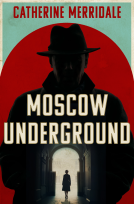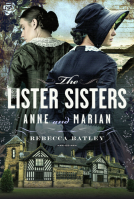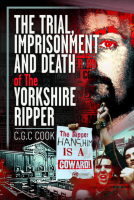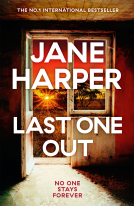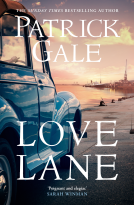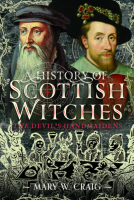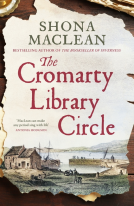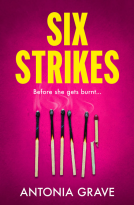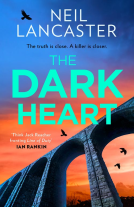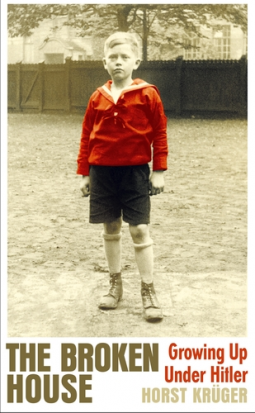
The Broken House
Growing up under Hitler
by Horst Krüger
This title was previously available on NetGalley and is now archived.
Send NetGalley books directly to your Kindle or Kindle app
1
To read on a Kindle or Kindle app, please add kindle@netgalley.com as an approved email address to receive files in your Amazon account. Click here for step-by-step instructions.
2
Also find your Kindle email address within your Amazon account, and enter it here.
Pub Date 17 Jun 2021 | Archive Date 17 Jul 2021
Random House UK, Vintage | Bodley Head
Talking about this book? Use #TheBrokenHouse #NetGalley. More hashtag tips!
Description
‘An unsparing, honest and insightful memoir, that shows how private failure becomes national disaster’ - Hilary Mantel
‘A forgotten treasure. No book has ever so honestly evoked the wretched terror of life in Nazi Germany’ - James Hawes, author of The Shortest History of Germany
'A masterpiece. An astonishing piece of literature' - Thomas Harding
In 1965 the German journalist Horst Krüger attended the Auschwitz trial in Frankfurt, where 22 former camp guards were put on trial for the systematic murder of over 1 million men, women and children. Twenty years after the end of the war, this was the first time that the German people were confronted with the horrific details of the Holocaust executed by 'ordinary men' still living in their midst.
The trial sent Krüger back to his childhood in the 1930s, in an attempt to understand 'how it really was, that incomprehensible time'. He had grown up in a Berlin suburb, among a community of decent, lower-middle-class homeowners. This was not the world of torch-lit processions and endless ranks of marching SA men. Here, people lived ordinary, non-political lives, believed in God and obeyed the law, but were gradually seduced and intoxicated by the promises of Nazism. He had been, Krüger realised, 'the typical child of innocuous Germans who were never Nazis, and without whom the Nazis would never have been able to do their work'.
This world of respectability, order and duty began to crumble when tragedy struck. Krüger's older sister decided to take her own life, leaving the parents struggling to come to terms with the inexplicable. The author's teenage rebellion, his desire to escape the stifling conformity of family life, made him join an anti-Nazi resistance group. He narrowly escaped imprisonment only to be sent to war as Hitler embarked on the conquest of Europe. Step by step, a family that had fallen under the spell of Nazism was being destroyed by it.
Written in accomplished prose of lingering beauty, The Broken House is a moving coming-of-age story that provides an unforgettable portrait of life under the Nazis. Yet the book's themes also chime with our own times - how the promise of an 'era of greatness' by a populist leader intoxicates an entire nation, how thin is the veneer of civilisation, and what makes one person a collaborator and another a resister.
Available Editions
| EDITION | Other Format |
| ISBN | 9781847926340 |
| PRICE | £14.99 (GBP) |
| PAGES | 256 |
Average rating from 35 members
Featured Reviews
 Dave W, Reviewer
Dave W, Reviewer
This is a curious and consuming story that if your interested in History and the common folk the side not often heard from. Everyone is different so is this worth hearing I'd say yes absolutely 💯% and why I gave it 5 stars 🌟
One man tells his story of survival If that's the right word, in some generations I'd say existenced but this is part of the life story of Horst Ķrűger. He is a German Gentleman from the 1900 born as WW1 ended and schooled in the middle of the wars so until 1945 only he only really knew his country ruled by him that is Hitler the one no one wants to talk about specially in his homelands.
Horst Krűger was in a middle class family brought up in the outskirts of Berlin were everyone appears civil apolitical a Catholic Mum and a non practising Protestant Dad, at least I assume he was non practicing their family's and Church's weren't happy about it. This is a generation like no other mind they didn't live through the Pandemic well most that is. Your right that is worse than the Pandemic just saying there are different trials for each generation. So yes every generation is different I grew up at school having to study this time admittedly from the side of the Allies mainly. There were so many films about how Americans swept in and saved the day plus other more factual ones often not from Hollywood strangely enough. I just assumed Germany bad the people as well England the brave Victor's impeccable and good. We all grow up to see things are not that simple or even close to the truth. UK obviously still the best 👌but well love the Germanys mainly excepton on the pitch penalties or not.
Back to the book, I have been having my eye open recently to the other side of things like how Germany turned things around for themselves with help but the people had to deal with their own legacy and how they could deal with their issues if that's the way to put it. Here is a true tale of one man and how things went for him and it is a tale very much worth hearing and I hope you do read this I think it's very with your while.
 Susan R, Reviewer
Susan R, Reviewer
The author of this book grew up in a 1930’s Berlin suburb. His father was injured in WWI and held a respected job, his mother was a Catholic, who tended to retire with mysterious illnesses. His parents were tired of war, inflation, and conflict. They wanted a quiet life in which to raise their children, tend their garden, compete quietly with their neighbours… They were, as Kruger points out, apolitical, respectable, removed. They tended not to talk to each other, or confront events, but, like many at that time, they were quietly accepting. The rise of Hitler led them to be more confident about their country, suddenly proud of being German, hopeful for change.
Change was certainly coming, and – in this book - the author confronts his youth, under Hitler. Where his parents openly agreed that much information given in the press, on the radio and in the newspapers, was wrong, but warned him not to disagree outside the safety of their respectable house. However, it was impossible to ignore history when it pressed against the very door and the author tells of his young life. Of the suicide of his sister, his inadvertent escapade into treasonous activities, his despair at the end of the war, which led him to surrender to the Americans.
It also tells of his attendance, as a journalist, of the 1965 Auschwitz trial in Frankfurt. Of the embarrassment, and unease, that his informing people he would be going to the trial caused. He was aware that nobody wished to hear of those things, but he was keen to understand the myth and the horror, only to discover the banality of evil. ‘Death,’ he muses, ‘as an act of administration.’ Defendants who are indistinguishable from anyone else attending the Court – including, bizarrely, those getting married in another part of the building. Men who have returned to Germany to re-build their life – to act as nurses, shopkeepers, accountants. Take away the uniform of the SS and you are left with middle aged men who go for lunch, laugh and joke with each other, have families. Kruger muses, perceptibly that that may be why so many of their victims do not return to Germany – how can they tell who could have been responsible for that evil, when they look placid now, rather than brutal?
This is a beautifully written, carefully constructed, look at the author’s younger years, when he grew up in a country dominated by Hitler, before this life passes, ‘into the hands of historians,’ as he puts it so well. It is a brave, honest account of how the horrors of Auschwitz occurred in a country where everyone denied all knowledge of what was happening. Indeed, the author himself states he had not heard the word Auschwitz while he was a soldier, but he honestly assesses what he might have done had he been ordered there. His father, never a Party member, was obviously not a supporter of the Nazi’s, but his parents were also impressed by the early successes of the regime, and it was this apathy that allowed what followed. The Jewish neighbours who left, whose absence was not questioned. The denial of knowledge, the looking away. I cannot recommend this highly enough and think it is a must-read for anyone interested in those years. I received a copy of this book from the publisher, via NetGalley, for review.
Readers who liked this book also liked:
Catherine Merridale
General Fiction (Adult), Historical Fiction, Mystery & Thrillers
Linda Collister; National Trust Books
Cooking, Food & Wine, Crafts & Hobbies, Home & Garden
Chris Cook
History, Nonfiction (Adult), True Crime
Eleanor Shearer
Historical Fiction, Multicultural Interest, Parenting, Families, Relationships
Yamily Habib
Biographies & Memoirs, Entertainment & Pop Culture, Nonfiction (Adult)

